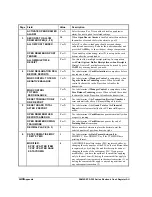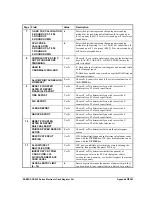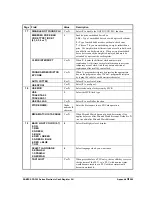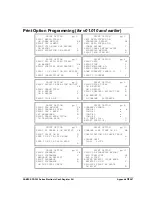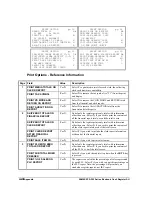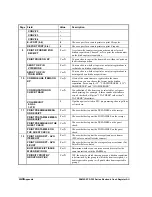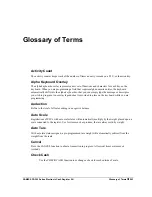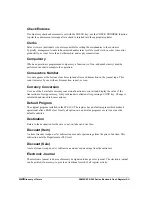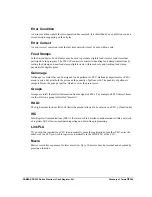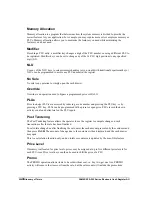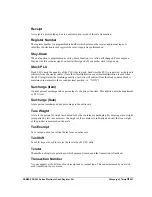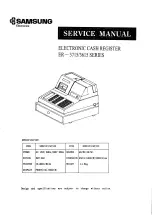
296
•
Glossary of Terms
SAM4S SPS-300 Series Electronic Cash Register AU
Memory Allocation
Memory allocation is a program that determines how the system memory is divided to provide the
correct features for your application. For example, you may require more or less employee memory or
PLUs. Memory allocation allows you to maximize the features you need while minimizing the
features you do not need.
Modifier
Preceding a PLU entry, a modifier key changes a digit of the PLU number, causing a different PLU to
be registered. Modifier keys can be set to change any of the 14 PLU digit positions to any specified
digit (0-9).
NLU
Use any of the NLU keys to categorize merchandise (as you would with traditional department keys.)
NLUs can be programmed to access any PLU number in the register.
No Sale
No sale is an operation to simply open the cash drawer.
Override
Override is an operation used to bypass a programmed price or HALO.
PLUs
Price look-ups (PLUs) are accessed by indexing a code number and pressing the PLU key, or by
pressing a PLU key. PLUs can be programmed with a preset or open price. PLUs record their own
activity count and dollar total on the PLU report.
Post Tendering
The Post Tendering feature allows the operator to use the register to compute change on cash
transactions after the sale has been finalized.
To calculate change due after finalizing the sale, enter the cash amount presented by the customer and
then press
CASH
. The amount of change due to the customer is then displayed, and the cash drawer
may open.
This is a calculation function only, and no totals or counters are updated by the use of this feature.
Price Level
If memory is allocated for price levels, prices may be assigned at up to five different price levels for
each PLU item. Price level keys can then be used to shift the price of a PLU.
Promo
The PROMO operation allows items to be sold without cost, i.e. buy two, get one free. PROMO
activity will remove the item cost from the sale, but the sales count will include the promo item.

